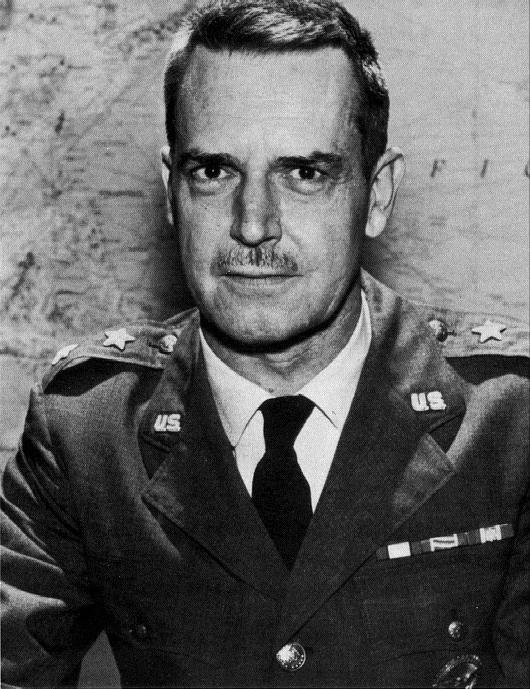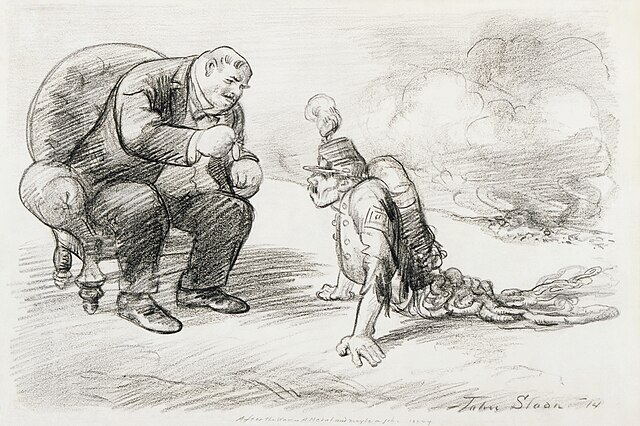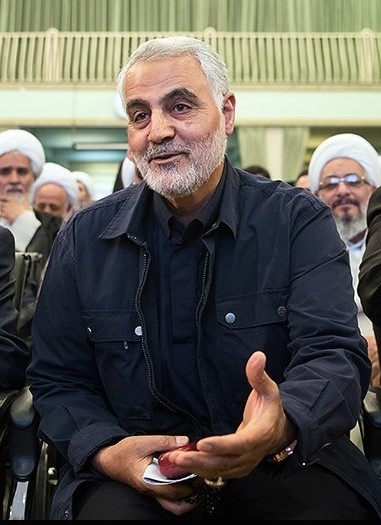
Historian Alfred McCoy joins us to discuss his new book, Cold War on Five Continents: A Global History of Empire and Espionage from Haymarket Books. "The Moment of Truth" with Jeff Dorchen follows the interview.
Help keep This Is Hell! completely listener supported and access bonus episodes by subscribing to our Patreon.
Please rate and review This Is Hell! wherever you get your podcasts. It really helps the show ascend the algorithm to reach new listeners.
The Assassination That Paved the Way for Trump’s Venezuela Attack / Séamus Malekafzali
On This Day in Rotten History...
In 244 – (1,773 years ago) – the nineteen-year-old Roman emperor Gordian III was killed by his own troops after being defeated by the Persians at the ancient city of Circesium in what is now Syria. The Roman Empire was in a period of bloody civil war, border insecurity, and economic collapse. Young Gordian had been made emperor six years earlier, in what is known as the Year of the Six Emperors. In that year (238), a revolt against the tyrant Maximius had resulted in a frail, elderly provincial governor being proclaimed Emperor Gordian I, and the old man had insisted that his son share power with him as Gordian II. The father-and-son co-emperors were popular with the Senate, but only lasted a month before being attacked at Carthage by an army led by a rival governor loyal to Maximius. When Gordian II was killed in the battle, his father, Gordian I, promptly committed suicide. The Senate quickly responded by installing two new co-emperors, Pupienus and Balbius, who not only mistrusted and feared each other but were hated by the Praetorian Guard. After just three months in power, they too, were killed. So it was in desperation that the Senate then turned to the terrified thirteen-year-old grandson of the first Gordian and nephew of the second, declaring him Emperor Gordian III. The young man struggled to grow into his role, but he died at Circesium, probably in a mutiny led by the general known as Philip the Arab. Philip then succeeded Gordian III as Roman emperor — and he, too, would be killed a few years later.
In 1823 – (194 years ago) – in Valletta, the capital of Malta, it was the last day of the public celebration of Carnival before the Catholic religious period of Lent. A church convent was observing its annual tradition of handing out free bread and fruit to poor children from the area, partly in order to keep them away from the bawdy confusion of the outdoor festival. Since Malta was experiencing a famine that year, the crowd of children was especially large, with some adults sneaking in as well. In a corridor of the old convent, the crowd got out of control and began pushing and shoving against a locked door. Soon a lamp went out, leaving the corridor in darkness, and the shoving got worse. Screams were heard as children were trampled, crushed, and suffocated. By the time people outside managed to pry the door open, more than a hundred... read more

Listen live from 9AM - 10:45AM Central on WNUR 89.3FM / stream at www.thisishell.com / subscribe to the podcast
9:15 - Author Pankaj Mishra examines the hidden history of anger across the modern world.
Pankaj is author of Age of Anger: A History of the Present from Farrar, Straus and Giroux.
10:00 - Author Nato Thompson explains how art became a weapon aimed at the public.
Nato is author of Culture as Weapon: The Art of Influence in Everyday Life from Melville House.
Toward, But Not Directly Toward, A Thermodynamic/Information Theory of History
Welcome to the Moment of Truth: the thirst that is the drink.
There's a framework for thinking about evolution in terms of thermodynamics, and I'm here to misunderstand it for you. Complex thermodynamically open systems, such as living organisms, but not only living organisms, but in this case, yes, living organisms, tend to want to redistribute the energy going into them by discharging it in the most entropic way possible. So, if you eat a lot of fuel, such as a pizza, you're going to be able to stomp around, breaking stuff and kicking up dust. On top of that, you'll be able to make machines that will take in energy and smash stuff and give off heat, destroying more organization than if you hadn't made the machine, and creating greater entropy than otherwise.
I'll be honest: I don’t think that's a very good illustration of the theory. Oh! That's because I forgot to say that the organization isn't just thermal energy, it's information. Information wants to be free, somebody said. I have the vague recollection it was a lawyer. But what information wants is beside the point. Energetic input helps cajole information to organize itself into complex systems. That's why there's something instead of nothing. Maybe. And information forms complex systems to more efficiently transform energetic input into entropy.
Without a shadow of a doubt, I am doing great violence to this theory. But maybe that's my purpose: to redistribute my breakfast into nonsensical misinterpretations of popular science articles in Quanta magazine, thereby turning organized chemical energy, as well as well-organized information in plain English, into froth and ado and evenly-distributed confusion.
This is why it is almost one hundred percent certain that the listenership of the This Is Hell radio program is going to continue to grow: broadcasting the information to more listeners distributes it over a greater area, therefore more evenly, in the cosmic scheme of things. Nature wants This Is Hell to have more listeners. It's only natural. And the listeners, absorbing this information, will mess up the world around them, creating entropy more efficiently.
I've slept through most of the past century's philosophical trends, so I don't know if people are still as pumped about dialectical materialism as they were back when I was a boy in the late 19th Century.... read more
On This Day in Rotten History...
In 1555 — (462 years ago) — the English Protestant clergyman John Rogers was executed for heresy on the order of Queen Mary I, daughter of Henry VIII. The new queen resented her father’s break with the papacy and was now keen to reestablish Catholicism in England. During her five-year reign she would have more than 280 Protestants executed, thus earning the nickname “Bloody Mary.” Rogers was the first of those Protestant martyrs. Like the others, he was burned alive at the stake.
In 1899 — (118 years ago) — units of the US military based in Manila, having taken possession of the Philippines from Spain the previous year in the Spanish-American War, found themselves in armed conflict with Philippine nationalist insurgents who were just as eager to get rid of the Americans as they had been to get rid the Spaniards. A few minor skirmishes escalated into large-scale fighting that continued through the next day. The Philippine president, Emilio Aguinaldo, tried to broker a cease-fire, but it was rejected by the top American general. More than five hundred Philippine soldiers were killed, along with some fifty to sixty Americans. The so-called Battle of Manila thus became the first and most deadly episode of the Philippine-American War, which lasted more than three years and solidified the United States’ colonial domination of the islands. It also killed some eighteen thousand Philippine soldiers and six thousand Americans — along with an estimated two hundred thousand Filipino noncombatants who died of violence, famine, and disease.
In 1977 – (40 years ago) – during the evening rush hour in the Loop area of downtown Chicago, the operator of a Lake–Dan Ryan elevated train missed a signal and allowed his train to plow into the one ahead. Instead of hitting his brake when the “el” trains made contact, he accidentally applied more motor power, causing the first two cars on his train to jackknife upward until a coupling bar snapped. Both cars fell off the elevated track and crashed onto the street below, along with two more train cars right behind them. Eleven people were killed and 180 were injured. Later it was revealed that the train operator had a bad safety record, including a prior derailment and several citations for reading and talking to passengers while operating his... read more

Listen live from 9AM - 1:00PM Central on WNUR 89.3FM / stream at www.thisishell.com / subscribe to the podcast
9:15 - Economist Geoff Mann outlines the history of Keynesianism's attempts to save capital from capitalism.
Geoff is author of the new book In the Long Run We're All Dead: Keynesianism, Political Economy, and Revolution from Verso Books.
10:00 - Live from Standing Rock, Dr. Sarah Jumping Eagle reports on DAPL resistance in the Trump era.
Sarah is a pediatrician and water protector, we've spoken to her twice in 2016.
10:35 - Journalist Michelle Chen examines Obama's mostly symbolic legacy on labor and trade.
Michelle wrote the Labor and Trade section of Jacobin's feature Assessing Obama.
11:00 - Legal scholar Marjorie Cohn reviews the dangerous record of Supreme Court nominee Neil Gorsuch.
Marjorie wrote the article Trump's Choice of Gorsuch Endangers Civil, Human and Environmental Rights for Truthout.
11:35 - Immigration researcher Karina Moreno finds a neoliberal consensus behind the border wall.
Karina wrote the article The Private Deportation Machine for Jacobin.
12:10 - Mathematician Paul-Olivier Dehaye profiles the use of psychometrics in political campaigns.
Paul posted the recent Medium article The (dis)information mercenaries now controlling Trump’s databases.
12:45 - In a Moment of Truth, Jeff Dorchen mangles a thermodynamic theory of evolution.
Jeff previously got thermodynamic in Decmeber of last year.
Here's what Chuck is reading to prepare for Saturday's show:
In the Long Run We're All Dead: Keynesianism, Political Economy, and Revolution - Geoff Mann [Verso Books]
Assessing Obama: Labor and Trade - Michelle Chen [Jacobin]
Trump's Choice of Gorsuch Endangers Civil, Human and Environmental Rights - Marjorie Cohn [Truthout]
The Private Deportation Machine - Karina Moreno [Jacobin]
The (dis)information mercenaries now controlling Trump’s databases - Paul-Olivier Dehaye [Medium]
And further recommended reading:
If Your Party Doesn’t Appeal To Young People, It Will Wither And Die - Nathan J. Robinson [Current Affairs]
On the Travel Ban: An Interview with Darryl Li - Atreyee Majumder [Cultural Anthropology]
On Borders / Race / Fascism / Labour / Precarity / Feminism / etc. - Angela Mitropoulos [Base]
Refugees are already vigorously vetted. I know because I vetted them - Natasha Hall [Washington Post]
With Muslim Ban, Trump and Bannon Wanted Chaos, but Not Resistance - Laleh Khalili [Truthout]
Beyond Resistance – Defeating Trump’s Burgeoning Dictatorship - Elliot Sperber [Counterpunch]
Police in Chicago Public Schools operate with no special training and little oversight - Yana Kunichoff [Chicago Reader]
Interviews for Resistance series - Sarah Jaffe [In These Times]
The Marriage of Schlock And Augustus
Welcome to the Moment of Truth: the thirst that is the drink.
Imagine you are an ape, living in a vineyard with your small tribe. The grapes growing there are ripe and sweet. Humans have not been seen in these parts for several months. The weather is warm. Are you not delighted?
This is just one of the mental exercises you can employ to rejuvenate and salve your spirit after catching a glimpse of the Thing currently occupying the office of President of the United States.
It happens. You've done your best not to think about it, but it's impossible to avoid an inadvertent reminder now and then that one of schlock-capitalism's most grotesque abominations is right now operating inside the Oval Office – inside one of the most august theatrical settings in our governmental drama – scribbling his shitty signature on morally deformed executive orders like he runs the joint.
It's a jolt to the system to see him there, that weird-ass bullshit piece of shit, with his shitty suit and shitty hair and his puckered ruined horrible face, warped by decades of being wrapped over a tiny, hard little pea-gravel crumb of a soul. Watching him meeting with GOP Senators, as little respect as I have for that bunch, is nevertheless jarring, like walking in on a grumpy cat in a dunce cap using your hotel room toilet.
One of the foundational principles of our government, it always seemed to me, was that the President was to be considered a human being, a citizen among citizens, not a special human being, but a normal human being, not a nobleman, not an aristocrat, not a monarch invested with Divine Right. That he was nevertheless accorded a colonial slave-built mansion with its own bowling alley and other luxuries came off, at least to me, as counter to the egalitarian spirit of the social mission of the USA.
Having so self-indoctrinated, I'd believed myself immune to feelings of undue respect for the office per se. Respect for the man occupying the office could be earned through respectable behavior, but there was nothing particularly sacred about the seal, the desk, the office, the house. Those were only worthy of respect as the accoutrements of a respect-worthy man inhabiting them.
Richard Nixon brought disgrace to his office, but even so, he never seemed unworthy of actually sitting at the desk. It was just a desk. He wore a suit and tie, like any other desk-sitting... read more



